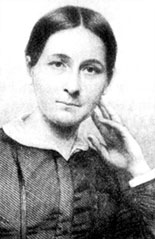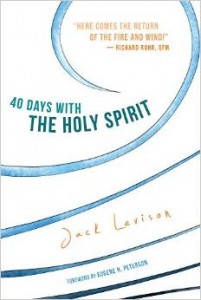With Priscilla Pope-Levison.
She wrote eighteen books, including the runaway international bestseller, The Way of Holiness.
She founded one of America’s first urban mission centers in New York City’s Five Points district, described by Charles Dickens as “reeking everywhere with dirt and filth” and popularized by Martin Scorsese’s film, Gangs of New York, starring Daniel Day-Lewis and Leonardo DiCaprio.
She held wildly successful worldwide evangelistic tours, including an astounding stint in Great Britain that stretched to four years.
She championed women’s right to preach in her 400 page book, Promise of the Father.
And when she sat down with her family to eat dinner, famed nineteenth century preacher, Phoebe Palmer, required each person at the table to quote a Bible verse from memory following the letters of the alphabet. Imagine the travel game, “I’m going on a vacation and taking with me …” in which each person adds a new item with the next letter of the alphabet—but with Bible verses instead. At Phoebe Palmer’s table, the first person chose a verse beginning with the letter “a,” the next with the letter “b,” and so on. (Thankfully, they didn’t repeat each verse; the hungry person who began with “y” didn’t need to repeat all of the preceding verses.)
Phoebe Palmer (1807-1874) was simply taking seriously the biblical mandate to pass on the faith—the topic of this month’s Patheos symposium. At the heart of this mandate lies the Shema, the center of Jewish life:
Hear, O Israel: The Lord is our God, the Lord alone. You shall love the Lord your God with all your heart, and with all your soul, and with all your might. Keep these words that I am commanding you today in your heart. Recite them to your children and talk about them when you are at home and when you are away, when you lie down and when you rise. Bind them as a sign on your hand, fix them as an emblem on your forehead, and write them on the doorposts of your house and on your gates. (Deuteronomy 6:4-9)
When asked what the greatest command of scripture was, Jesus began with the Shema without a moment’s hesitation: “You shall love the Lord your God with your whole heart …” (Mark 12:29-30).
Ask yourself what loving God with “your whole heart” means, and you may come up with something like, “Love God with your whole self” or “your whole being.” We think of the heart as the seat of emotions—or perhaps the will. Actually, the Hebrew word, heart, lebab, is better translated in the Shema by the word, memory: “You shall love the LORD your God with all your memory.”
Two chapters earlier in Deuteronomy, in fact, the same Hebrew word clearly means memory: “But take care and watch yourselves closely, so as neither to forget the things that your eyes have seen nor to let them slip from your mind [lebab] all the days of your life” (Deuteronomy 4:9). Remember! Never forget! Never let something you’ve seen slip from your mind! The best sense of the Hebrew word, lebab, is memory.
That’s exactly what we are asked to do in Deuteronomy 6, the Shema. Love the Lord our God with our memories: “You shall love the LORD your God with all your heart” and “keep these words that I am commanding you today in your heart”—in your memory.
We’re college professors, so we’ve said something like this to our students more often than we can count: “You’d better know these dates by heart for the mid-term!” Memorize them!
Our children, too, have heard this. “You’ve got to learn the multiplication table by heart. There’s no other way.” (Followed by a child’s sigh.)
The Shema tells parents to teach their children. How? It’s simple: by never letting them forget the stories, songs, and sayings of the faith. Start with a simple Bible verse you memorize together. Or a hymn—something like “O, for a Thousand Tongues to Sing.” Or, when they are a little older, a creed, like the Apostles’ Creed.
Love God with all your memory. As illustrious as Phoebe Palmer may have become, she remembered this simple principle of passing on the faith.
______________________
On this ritual, look at Harold E. Raser, Phoebe Palmer: Her Life and Thought, page 26.
For more on Phoebe Palmer, read Priscilla Pope-Levison, Turn the Pulpit Loose: Two Centuries of American Women Evangelists, which Palgrave Macmillan will reissue in the coming months.

















